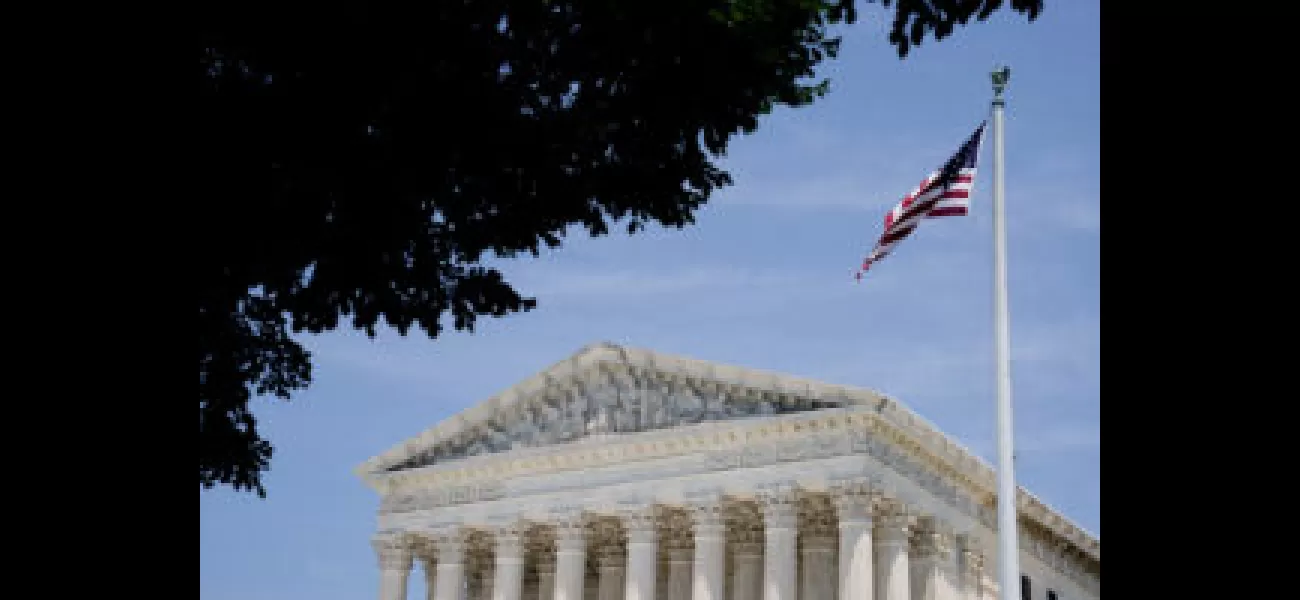Supreme Court rules against using race as basis for redrawing Louisiana's electoral map.
Court rejects Louisiana GOP official's bid to defend challenged map, protecting Black voters' rights.
June 26th 2023.

The U.S. Supreme Court made a crucial decision on Monday, dismissing a bid by Louisiana's Secretary of State Kyle Ardoin to defend a map of congressional districts which had been challenged by Black voters as discriminatory. The Court's decision was made in light of their ruling on a similar case from Alabama, which was issued on June 8.
The map had been drawn by the Republican-led state legislature, and upon closer inspection, U.S. District Judge Shelly Dick concluded that it likely discriminated unlawfully based on race. As a result, she directed the legislature to create two House districts where Black voters would represent the majority of voters - a decision which could potentially boost Democratic chances in the upcoming 2024 congressional elections.
The justices, in their brief dismissal order, agreed that the matter should proceed before the 5th U.S. Circuit Court of Appeals in New Orleans.
The Republican-drawn map in Louisiana was passed in February 2022, and was challenged by Black voters and civil rights groups in two separate lawsuits. The plaintiffs argued that the map unlawfully packed large numbers of Black voters into a single district, and dispersed the rest into the five others in numbers too small to enable them to elect their preferred candidates.
This was seen as yet another example of Republicans exploiting state legislature majorities to draw electoral maps that would dilute the voting power of Black and other minority voters. Democrats, however, argued that the consideration of race in drawing electoral maps must be limited.
The Supreme Court, in their June 8 ruling on the Alabama case, affirmed a lower court's decision that the Republican-drawn map diminished the voting power of Black Alabamians in violation of the Voting Rights Act. This was particularly significant as the Court chose not to further roll back protections contained in the Voting Rights Act, as they had done in two major decisions in the past decade.
The map had been drawn by the Republican-led state legislature, and upon closer inspection, U.S. District Judge Shelly Dick concluded that it likely discriminated unlawfully based on race. As a result, she directed the legislature to create two House districts where Black voters would represent the majority of voters - a decision which could potentially boost Democratic chances in the upcoming 2024 congressional elections.
The justices, in their brief dismissal order, agreed that the matter should proceed before the 5th U.S. Circuit Court of Appeals in New Orleans.
The Republican-drawn map in Louisiana was passed in February 2022, and was challenged by Black voters and civil rights groups in two separate lawsuits. The plaintiffs argued that the map unlawfully packed large numbers of Black voters into a single district, and dispersed the rest into the five others in numbers too small to enable them to elect their preferred candidates.
This was seen as yet another example of Republicans exploiting state legislature majorities to draw electoral maps that would dilute the voting power of Black and other minority voters. Democrats, however, argued that the consideration of race in drawing electoral maps must be limited.
The Supreme Court, in their June 8 ruling on the Alabama case, affirmed a lower court's decision that the Republican-drawn map diminished the voting power of Black Alabamians in violation of the Voting Rights Act. This was particularly significant as the Court chose not to further roll back protections contained in the Voting Rights Act, as they had done in two major decisions in the past decade.
[This article has been trending online recently and has been generated with AI. Your feed is customized.]
[Generative AI is experimental.]
0
0
Submit Comment





